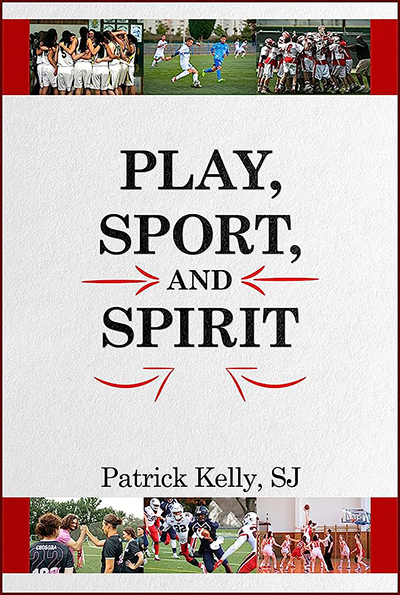Professor, alumnus ruminates on the importance of sport to the spirit in new book
 Patrick Kelly, S.J. ’83, a former all-conference free safety at Grand Valley State, retired from football more than 40 years ago.
Patrick Kelly, S.J. ’83, a former all-conference free safety at Grand Valley State, retired from football more than 40 years ago.
Yet to this day, sports continue to serve an integral role in his life and work as associate professor of Religious Studies at Detroit Mercy. Last fall, Kelly took part in the international summit on sports and accessibility at the Vatican. He’s also written or contributed to multiple books on sports and faith.
In March, Kelly published Play, Sport, and Spirit, reflecting on what’s lost when the element of play is marginalized in sports.
Over the last decade or so, he’s seen all levels of sports become instrumentalized, which Kelly describes as the process of using something for one’s own personal gain, like when private coaches encourage parents to spend thousands of dollars for private training and travel leagues.
Athletic training has become a vehicle for external goods, and younger generations are missing out on many of the intrinsic values Kelly gained from his athletic career.
“Young people are dropping out of sport by age 13 because it’s no longer fun,” Kelly said. “It's just become so serious. There’s that going on youth sports, but also, we can see a lot of examples of how sports at its higher levels are ratcheting up.”
Youth sports participation among children ages 6 to 12 in the United States fell from 45% in 2008 to 38% in 2018, according to the Sports & Fitness Industry Association.
The topic has gained widespread notoriety in publications like the Wall Street Journal and New York Times because of the adverse effects the decline in participation has on adolescent and adult physical health, self-esteem and their ability to work in teams and problem-solve.
Kelly believes that play in sports provides many spiritual and psychological benefits rooted in Catholic teachings. Yet even those who continue with sports often miss out on such perks because many of today’s collegiate and professional athletes are no longer engaging in athletic activities that are enjoyable for their own sake.
He says the idea of a “play ethic” is most notably articulated by Catholic theologian Saint Thomas Aquinas, who pondered whether there is virtue in games in his Summa Theologica.
“He says yes because virtue has to do with moderation,” Kelly said. “He’s drawing on Aristotle here, but virtue has to do with moderation. If a life consists only of work or serious considerations, this would be excessive. A fully human life also needs time for recreation, for relaxation. Play activities provide that.”
Kelly also sees a connection between getting lost in the play and Saint Ignatius of Loyola’s teachings on spiritual consolation, the process of drawing one’s heart closer to God.
“Just as when I play soccer, I am able to completely immerse myself into a zone where no outside distractions affect me,” Madison says in the book, “I also see myself getting lost in a process I enjoy when I become a nurse and have to take care of people. I can build this new flow experience upon my older one because of the way I know and understand myself.”
You can find more of Fr. Kelly's writing here.
